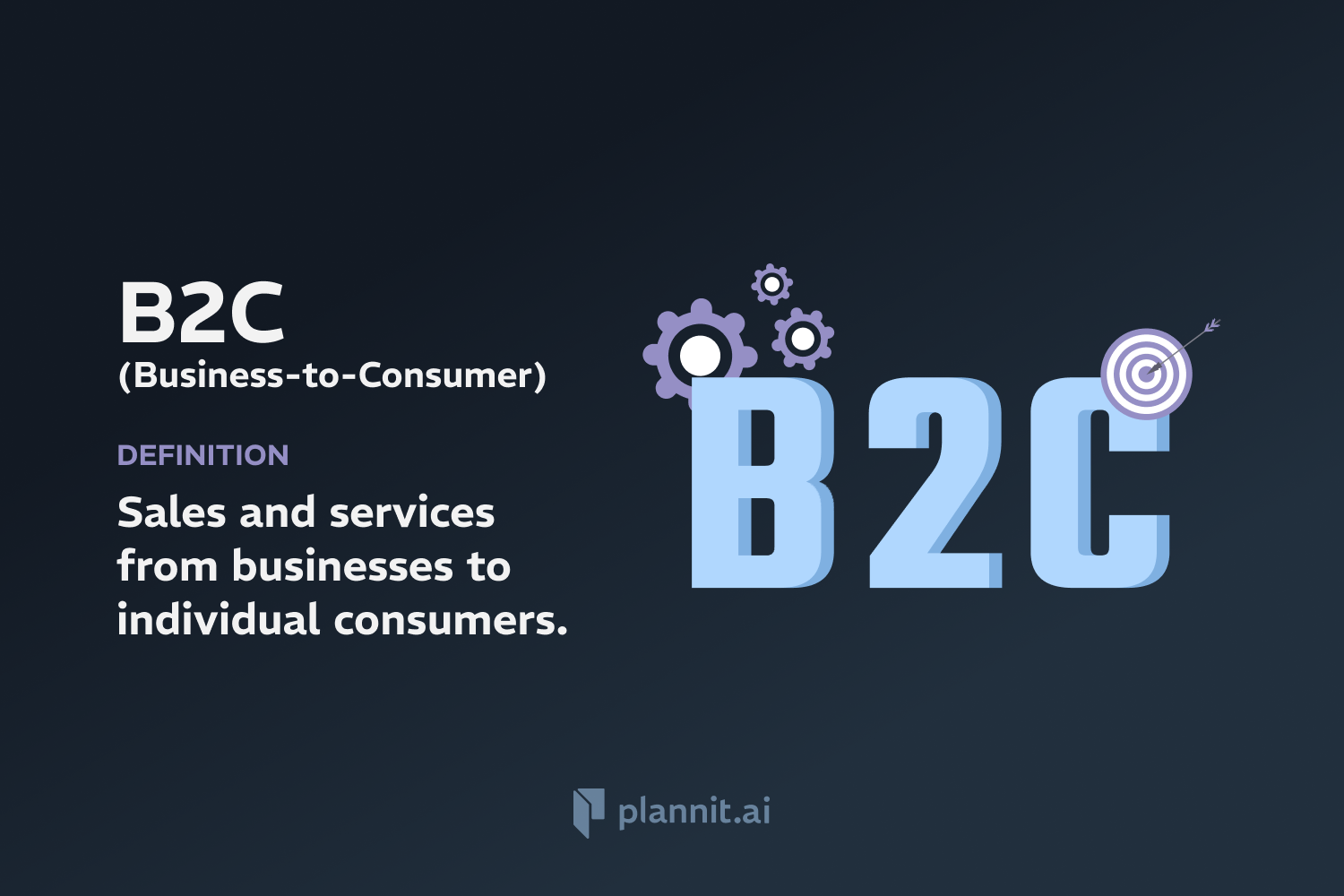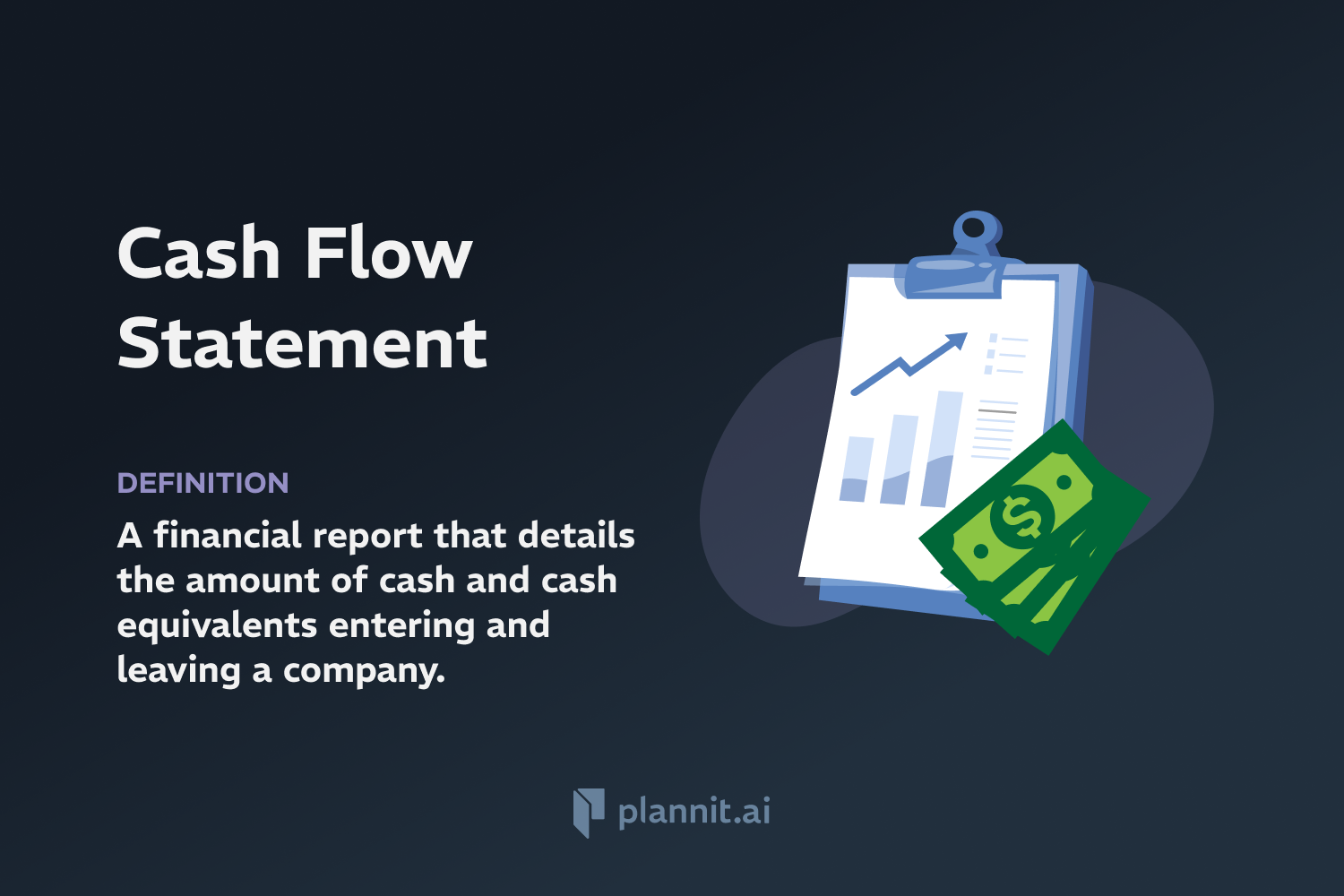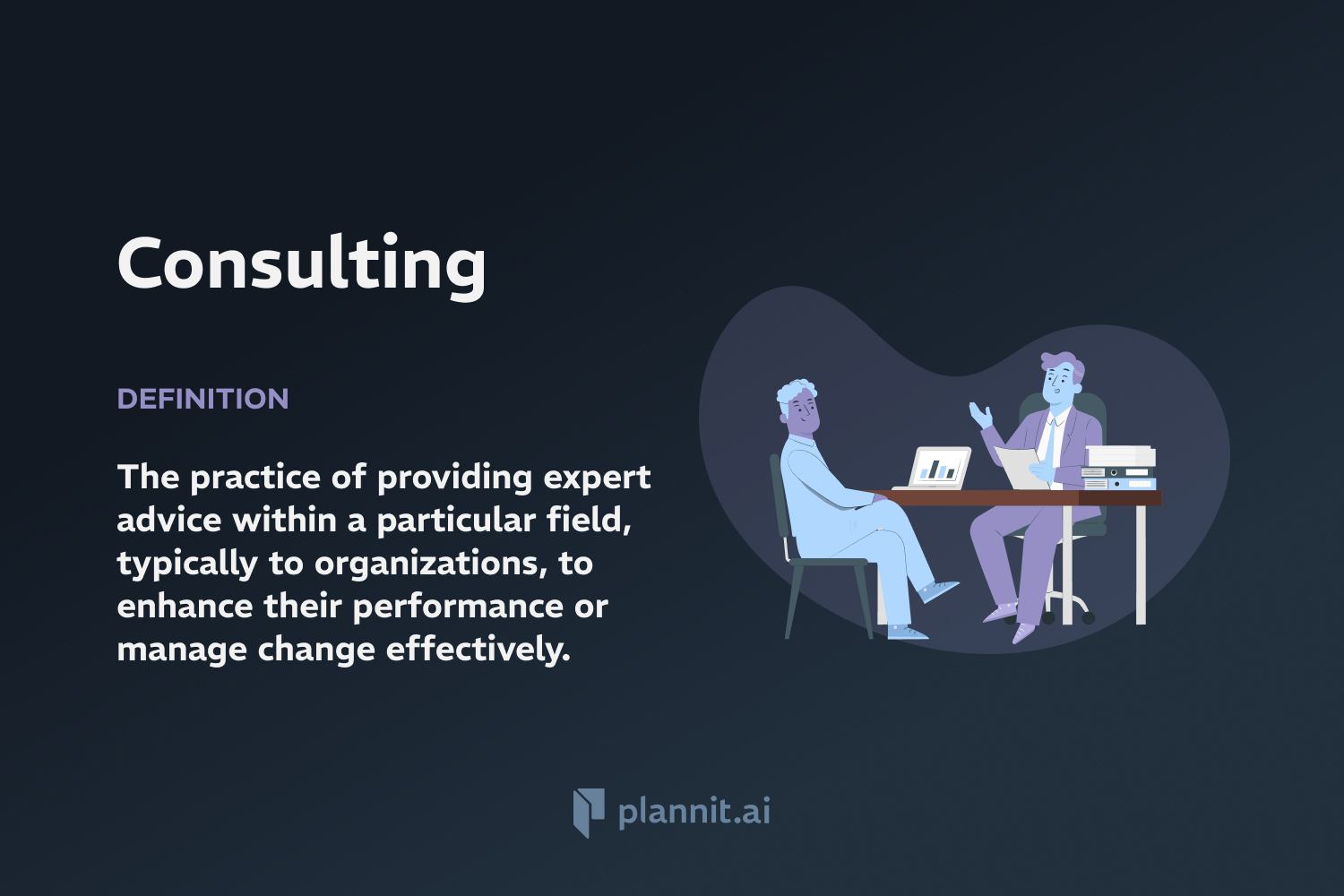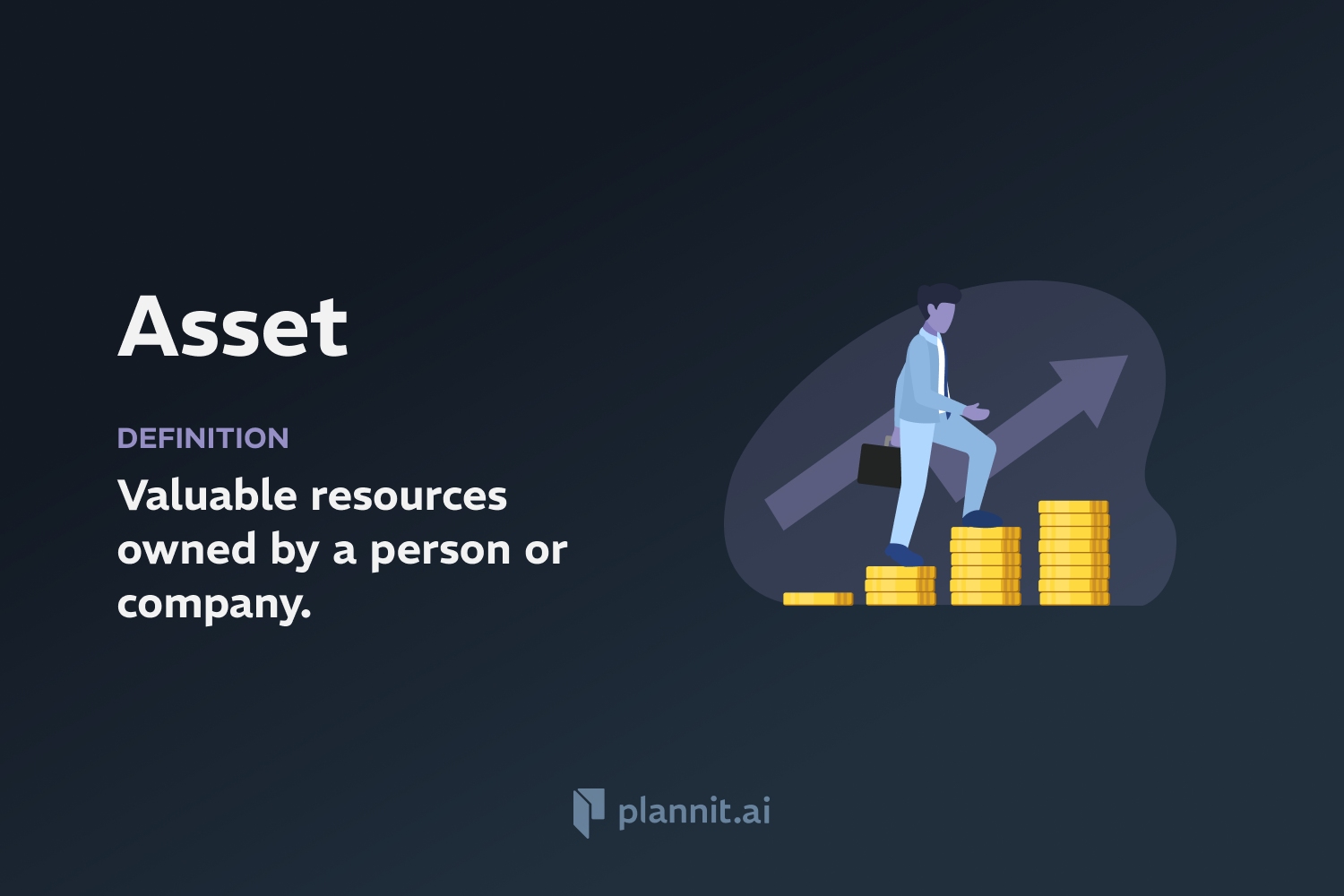Need Help With Your Business Plan?
Answer tailored questions and get a detailed business plan in minutes.
B2C (Business-to-Consumer): Definition & In-Depth Explanation

B2C refers to the transactions and interactions between businesses and individual consumers. This model is most commonly associated with retail transactions, where companies sell products or services directly to consumers for personal use. B2C is prevalent in a variety of industries, including retail, hospitality, entertainment, and online services. The rise of e-commerce and digital platforms has significantly expanded the B2C market, allowing businesses to reach consumers globally with relative ease.
Purpose:
The primary purpose of B2C transactions is to fulfill the needs and desires of individual consumers by providing them with products or services. This model focuses on quick purchasing decisions, convenience, and emotional engagement, often leveraging branding and marketing to appeal directly to consumers' preferences and lifestyles. B2C businesses strive to enhance the consumer experience, simplify the buying process, and build brand loyalty.
Example:
An online fashion retailer operates a website where consumers can browse and purchase clothing and accessories. The retailer uses various marketing strategies, such as social media advertising, email marketing, and search engine optimization, to attract consumers to its website. The purchasing process is designed to be as seamless as possible, with features like one-click ordering, customer reviews, and free returns to enhance the shopping experience and encourage repeat business.
Related Terms:
Consumer Behavior: The study of individuals, groups, or organizations and the processes they use to select, secure, use, and dispose of products, services, experiences, or ideas to satisfy needs and the impacts that these processes have on the consumer and society.
E-commerce: The buying and selling of goods and services, or the transmitting of funds or data, over an electronic network, primarily the internet.
Customer Relationship Management (CRM): Strategies and technologies used by businesses to manage and analyze customer interactions and data throughout the customer lifecycle, with the goal of improving customer service relationships and assisting in customer retention and driving sales growth.
Direct Marketing: A form of advertising where businesses communicate directly to the consumer through various media, including mail, email, texts, and online advertising.
FAQs:
What makes B2C marketing different from B2B marketing?
B2C marketing focuses on emotional storytelling, branding, and direct appeals to consumers' desires and needs, often through broad-reaching channels. In contrast, B2B marketing typically involves more informational and rational appeals based on the business value and ROI of the product or service.
How has the internet changed B2C transactions?
The internet has transformed B2C transactions by enabling direct and immediate access to a global market, allowing businesses to sell products and services online, and providing consumers with a platform to compare prices, read reviews, and purchase items from the comfort of their homes.
Can B2C companies benefit from social media?
Yes, social media platforms are powerful tools for B2C companies to engage with consumers, build brand awareness, and promote products and services through targeted content and advertising.
What is the importance of customer service in B2C?
Exceptional customer service is crucial in B2C transactions as it directly affects customer satisfaction, loyalty, and the likelihood of repeat purchases. Good customer service helps in building a positive brand image and can differentiate a company in a competitive market.
What challenges do B2C businesses face?
B2C businesses face challenges such as maintaining competitive pricing, managing supply chain efficiency, adapting to changing consumer preferences, and effectively leveraging digital marketing strategies to reach and engage consumers.
Get funding with a business plan that will impress investors.
Starting a New Business?



